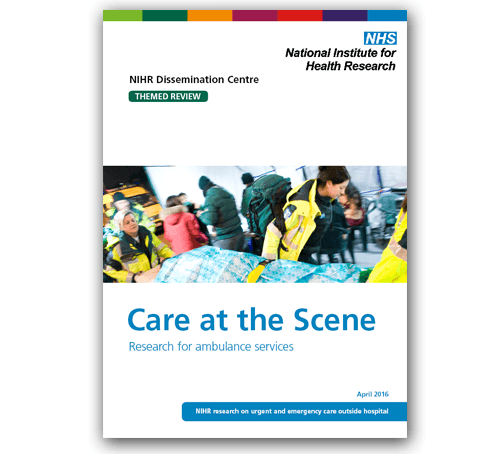Please note that this summary was posted more than 5 years ago. More recent research findings may have been published.
The role and the scope of ambulance services has changed radically over recent decades. The ambulance service is now expected to provide complete pre-hospital care.
The majority of 999 calls are not traffic accidents or heart attacks. More typically, calls involve people with complex and ongoing health problems experiencing a crisis. This could be an elderly person with heart failure and diabetes having had a fall, someone with lung disease experiencing breathlessness or a person at risk of suicide ringing in distress.
DOI: 10.3310/themedreview-000827
 Care at the Scene - Research for ambulance services
Care at the Scene - Research for ambulance services
Care at the Scene brings together recent NIHR research evidence on urgent and emergency care, focused on the ambulance service. It features:
- Insights from paramedics, researchers and commissioners
- 22 published studies
- 17 ongoing projects
- Questions for your organisation
Produced by the University of Southampton on behalf of NIHR through the NIHR Dissemination Centre